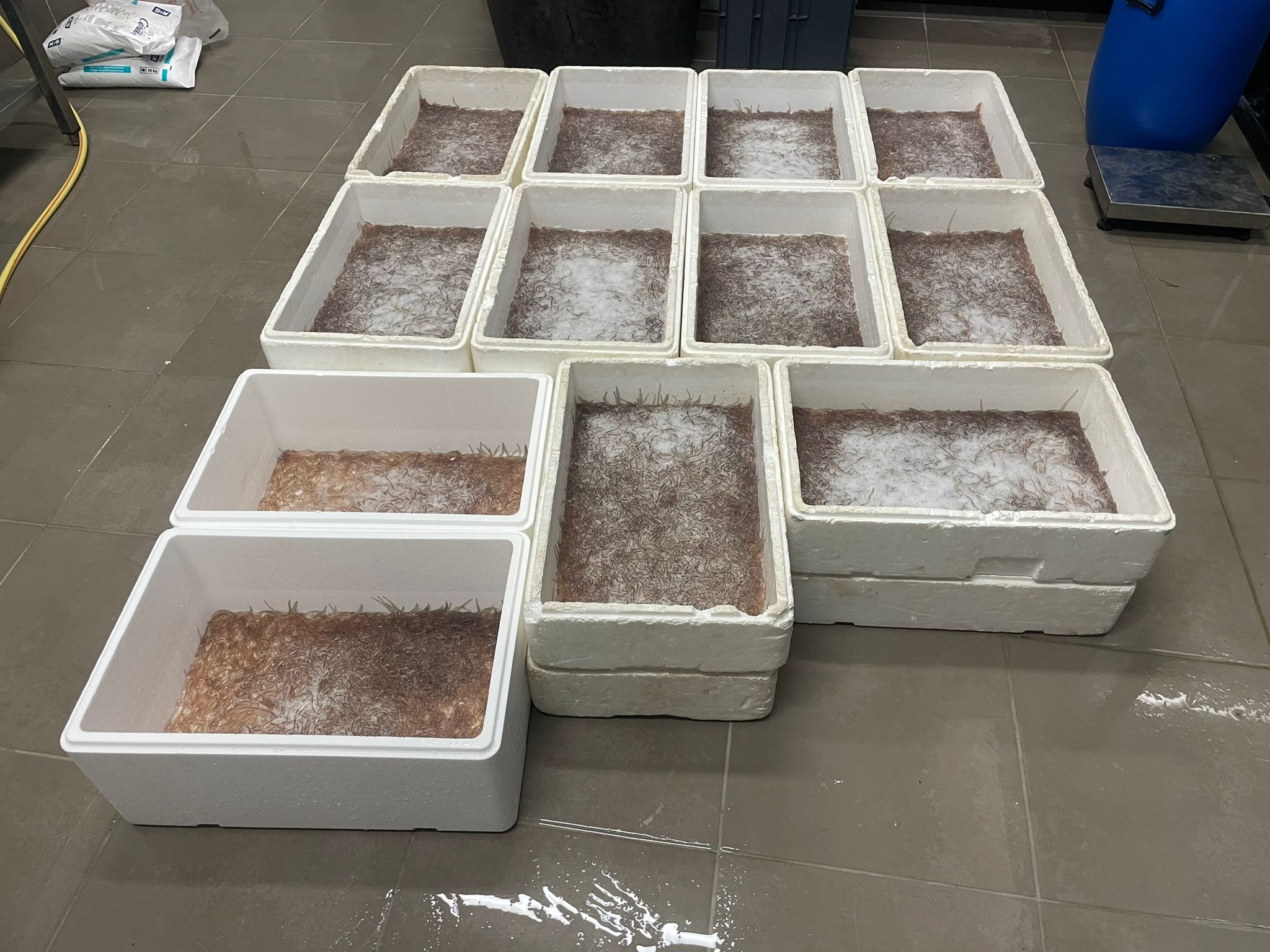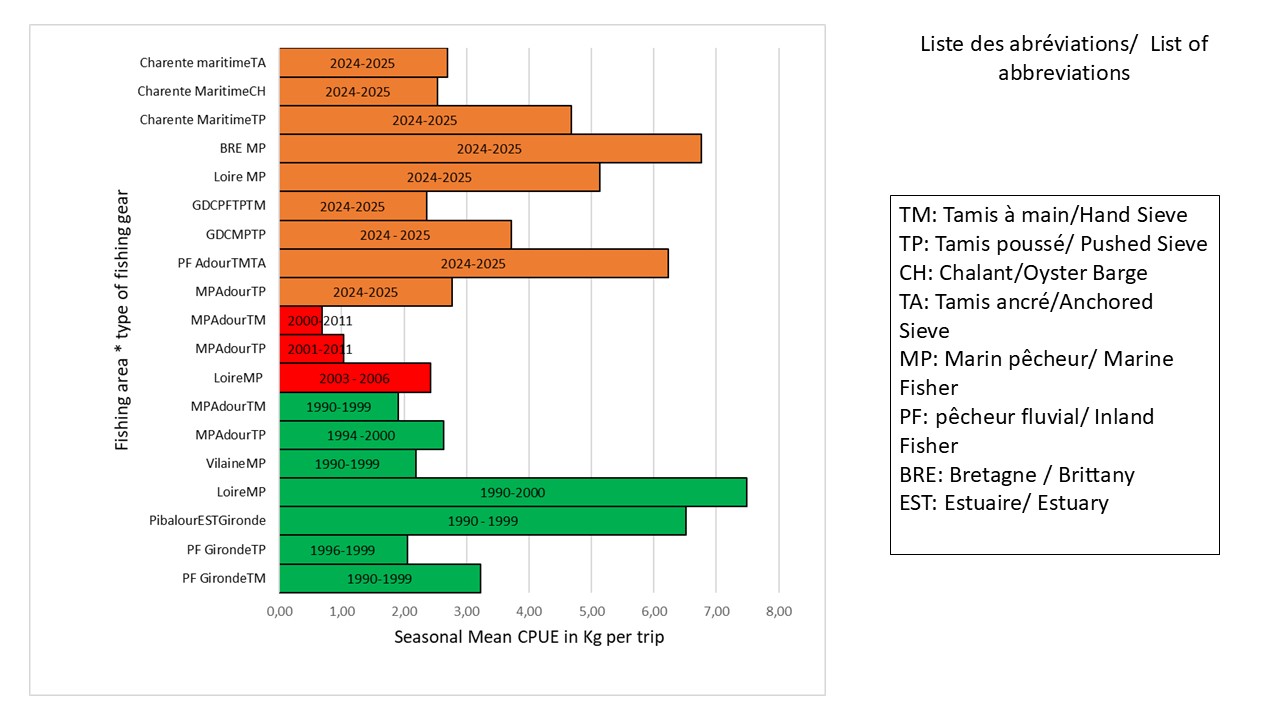A.F.P.M.A.R.
French Association for the Promotion of the Responsible Eel Brand
Our Goal
To set up a ‘Responsible Eel’ collective brand to contribute to the social and economic sustainability of this small-scale fishing activity, which is a source of local fish production of great diversity and quality.
A few Facts
First observation:
This activity is denigrated by many so-called environmental associations and is often presented as an illegal and destructive activity that shamelessly hunts down ‘white gold’ (‘glass eel’). Hence the need to set the facts straight, which is what AFPMAR is endeavouring to do, using substantiated arguments based on official, validated technical and scientific documents.
Second observation:
Given the sometimes irreversible degradation of the aquatic habitats necessary for the species to survive, the knowledge and know-how of professional fishers will be essential to restoring this resource. Hence the need to preserve this technical heritage and no longer consider the reduction in the number of professional fishers as one of the key elements of a management plan, but rather as a hindrance to the restoration of our aquatic ecosystems.
Third observation:
The transfer of glass eels from the central zone of the distribution area to peripheral zones less irrigated by glass eel or small eel flows is a long-standing activity and one of the key elements of many eel restoration plan defined by Regulation UE 1100/2007. It is important to intensify this activity while developing research to optimise the survival of transferred individuals in the wild.
Fourth observation:
The main polluters and destructors of the environment are not the ones who pay. The only people who have paid the price for environmental degradation are the professional fishermen who depend directly on the productivity of the environment. Yet their activity is essential to the survival of the eel industry in Europe, whose farming and processing have become well structured following the introduction of EU regulation 1100/2007. It is therefore important to re-establish the balance within this sector by allowing the fishing industry to have a more open and dynamic market in terms of restocking and to make the many uses that spend inconsiderately on goods and services of environment, pay, which is not the case at present.
Our demands, based on the existing regulatory framework
- Modification of the consumption/stocking allocation key to rebalance supply and demand for restocking, as provided for in Article 7(2) and (6) of Regulation 1100/2007, where the price of restocking glass eels is much lower than the consumption price.
- Definition of a sub-quota for exports outside the EU on top of the consumption sub-quota to enhance the value of French glass eels and reduce dependence on the farming industry. This is in line with CITES or EU regulations for species such as eels listed in Annex II (CITES) or Annex B (EU).
- Establishment of a protocol to ensure the traceability of glass eels used for restocking in Europe, so as to avoid using tails from batches reared for consumption. Until such time as this protocol is put in place, preference should be given to the use of glass eels, bearing in mind that existing studies do not show any substantial gain in the production of yellow and silver eels from farmed young eels, the cost of which is more than 5 times higher than that of wild glass eels, which ultimately penalises the fishing industry and favours the farming industry.
- To ensure transparency in calls for tender concerning restocking projects when they receive European and/or public funding. Responses to calls for tender should be made in sealed envelopes and subject to no conditions other than those imposed by the regulations in force (quality, traceability, legality).
- Participation in the implementation of an active restoration policy by making available the observations, knowledge and know-how of professionals in the fishing and trade sectors. ARA France has already promoted this type of observation network on the species and its habitats, which will be supplemented by the AFPMAR’s observations concerning the development of the eel industry and the supply of data on trends in catches.
- Finally, AFPMAR, as a collective brand, is there to promote the eel industry in France and to inform its members and partners about the effects and impacts of the various measures taken at national and European level on the eel industry, to propose actions to restore the species and to enable constructive exchanges between members.
The Eel, a species with a very complex life cycle, requires sustainable management of its habitats and not just its exploitation.
The European Eel (Anguilla anguilla) is classified as Critically Endangered by the International Union for Conservation of Nature (IUCN)
In 2019, the IUCN reported that “Nine years after the first assessment, the situation of the species remains worrying”. According to the IUCN, “the destruction and degradation of natural environments were the main causes of species decline, particularly for diadromous migratory fish species. The degradation of their habitats and dams compromise their migratory travel to breeding grounds”.
This observation is widely shared by professional sea and river fishermen who have constantly denounced the multiple degradation of the species’ habitats. The destruction of wetlands, vegetated banks, the numerous obstacles to upstream and downstream migration, the damming of estuaries to protect against flooding, the land drainage, the increasingly intense use of water resources for urban, tourist and industrial needs, the organic, biological and chemical pollution have all had a great effet and impact on a species that was considered in France by recreational fishing managers as a pest in salmonid waters.
However, it is clear that managers at national and European levels have often considered professional fishing as an adjustment variable for the faults of other actors who indiscriminately use water as an unlimited resource and consider aquatic environments as worthless areas to be conquered.
Common sense tells us, however, that you don’t “sow a field of waste” and that by reducing aquatic habitats as our society has done, there is little hope of conserving the resources they contain. Let’s not fool ourselves: eradicating fishing will not solve the physical and chemical damages to the environment, nor restore the wetlands.
The eel tree, from the INDICANG programme (eel colonisation indicators in the central part of its colonisation area), is a very good illustration of the functioning of the eel population at the scale of its distribution area. Each leaf of the tree represents a production unit and the size of the foliage represents the size of the population. It is easy to understand that by stripping the leaves from the tree and pruning its branches, its vigour is reduced.
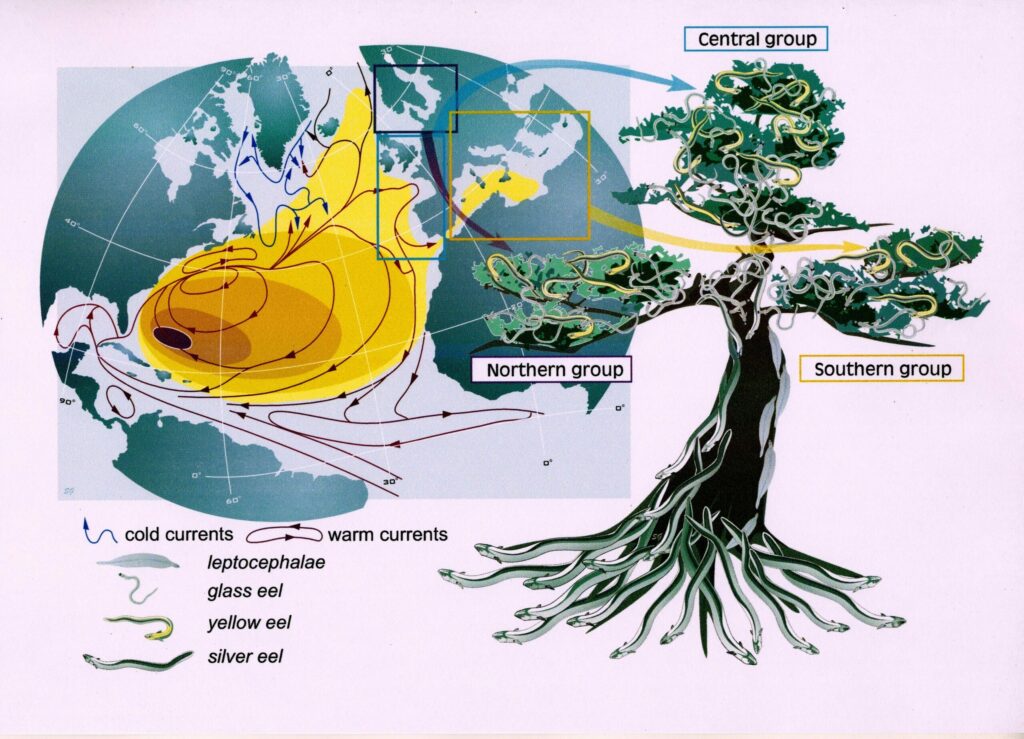
Responsible activity: producing locally and at low carbon cost, contributing to resource management, conserving environmental heritage
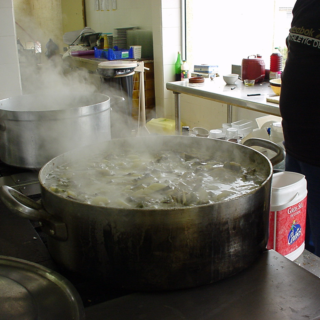
Eel fishing, like all migratory fish: salmon from the Adour, eels from the Loire or the Mediterranean Sea, shad from the Loire or the Adour basins, sea lamprey from the Gironde watershed, all contribute to the gastronomic reputation of our many rural territories. Here is a photo of eel "bourride", a typical dish of the Mediterranean lagoons, or eel in parsley sauce from the South-Western part of France, or eel prepared in Japanese cuisine: Unagi prepared in Kabayaki, one of the flagship dishes of Japanese gastronomy.
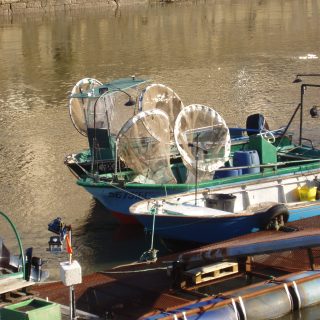
Glass eel fishing is a heavily monitored activity in France. From the time the catch is recorded in fishing sheets to its transport to the place of trade and then to its final destination, the glass eel is controlled and its use (consumption or restocking) is precisely respected. Unfortunately, the information gathered by professionals is under-used by the administration and scientists, which leads to a lack of trust in the management structures by professional fishermen, even though professional fishermen are often the first whistle blowers.
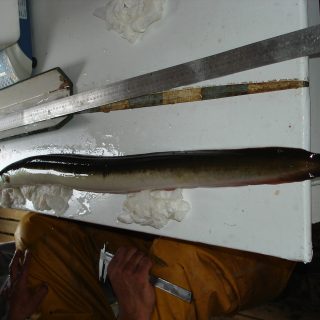
Professional fishermen make their knowledge and know-how available to research organisations to develop studies on diadromous migratory species, particularly eels: evaluation of glass eel populations in the Adour, Loire and Gironde rivers; abundance estimates of silver eels in the Loire; participation in the tagging of silver eels in the Loire and the Mediterranean Sea, enabling scientists to demonstrate the convergence of the migration routes of eels from the Atlantic and Mediterranean coasts
